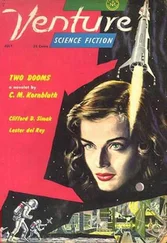Clifford Simak - Ring Around the Sun
Здесь есть возможность читать онлайн «Clifford Simak - Ring Around the Sun» весь текст электронной книги совершенно бесплатно (целиком полную версию без сокращений). В некоторых случаях можно слушать аудио, скачать через торрент в формате fb2 и присутствует краткое содержание. Жанр: Фантастика и фэнтези, на английском языке. Описание произведения, (предисловие) а так же отзывы посетителей доступны на портале библиотеки ЛибКат.
- Название:Ring Around the Sun
- Автор:
- Жанр:
- Год:неизвестен
- ISBN:нет данных
- Рейтинг книги:5 / 5. Голосов: 1
-
Избранное:Добавить в избранное
- Отзывы:
-
Ваша оценка:
- 100
- 1
- 2
- 3
- 4
- 5
Ring Around the Sun: краткое содержание, описание и аннотация
Предлагаем к чтению аннотацию, описание, краткое содержание или предисловие (зависит от того, что написал сам автор книги «Ring Around the Sun»). Если вы не нашли необходимую информацию о книге — напишите в комментариях, мы постараемся отыскать её.
Ring Around the Sun — читать онлайн бесплатно полную книгу (весь текст) целиком
Ниже представлен текст книги, разбитый по страницам. Система сохранения места последней прочитанной страницы, позволяет с удобством читать онлайн бесплатно книгу «Ring Around the Sun», без необходимости каждый раз заново искать на чём Вы остановились. Поставьте закладку, и сможете в любой момент перейти на страницу, на которой закончили чтение.
Интервал:
Закладка:
But it did not matter, he knew. Here it was upper middle class in an apartment house with its doorman uniformed, while across the city there would be another meeting in a tenement that had never known a doorman. And in the little villages and the smaller cities they would meet in houses, perhaps at the banker's house or at the barber's house. And in each instance someone would rap on the table and say would the meeting come to order, please. At most of the meetings, too, there would be a man or a woman like Sally, waiting to talk to the members, hoping to make converts.
The dowager was saying, "Miss Stanhope is the first member on our list to read tonight."
Then she sat back, contented, now that she had them finally quieted down and the meeting underway.
Miss Stanhope stood up and she was, Vickers saw, the personification of frustrated female flesh and spirit. She was forty, he would guess, and manless, and she would hold down a job that in another fifteen years would leave her financially independent — and yet she was running from a spectre, seeking sanctuary behind the cloak of another personality, one from the past.
Her voice was clear and strong, but with a tendency to simper, and she read with her chin held high, in the manner of an elocution student, which made her neck appear more scrawny than it was.
"My period, you may remember," she said, "is the American Civil War, with its locale in the South."
She read:
Oct. 13, 1862 — Mrs. Hampton sent her carriage for me today, with old Ned, one of her few remaining servants, driving, since most of the others have run off, leaving her quite destitute of help, a situation in which many of the others of us also find ourselves…_
Running away, thought Vickers, running away to the age of crinoline and chivalry, to a war from which time had swept away the filth and blood and agony and made of its pitiful participants, both men and women, figures of pure romantic nostalgia.
She read:… _Isabella was there and I was glad to see her, for it had been three years since we had met, that time in Alabama…_
And yet a fleeing now turned into a ready instrument to preach the gospel of that other world, the second world behind the tired and bloody Earth.
Three weeks, he thought. No more than three weeks and they're already organized, with the Georges who do the shouting and the running and occasionally the dying, and the Sallys who do the undercover work.
And yet, even with the other world before them, even with the promise of the kind of life they seek, they still cling to the old nostalgic ritual of the magnolia-scented past. It was the mark of doubt and despair upon them, making them refuse to give up the dream through fear that the actuality, if they reached for it, would dissolve beneath their fingertips, vanish at their touch.
Miss Stanhope read on: _I sat for an hour beside old Mrs. Hampton's bed, reading "Vanity Fair," a book of which she is fond, having read it herself, and having had it read to her since the occurrence of her infirmity, more times than she can remember._
But even if some of them still clung to the scented dream, there were others, the Georges among them, the «activists» who would fight for the promise that they sensed in the second world, and each day there would be more and more of them who would recognize the promise and go out and work for it.
They would spread the word and they would flee the police when the sirens sounded and they would hide in dark cellars and come out again when the police were gone.
The word is safe, thought Vickers. It has been placed in hands that will guard and cherish it, that can do no other than guard and cherish it.
Miss Stanhope read on and the old dowager sat behind the table, nodding her head just a little drowsily, but with a firm grip still upon the letter opener, and all the others were listening, some of them politely, but most with consuming interest. When the reading was done, they would ask questions on points of research and pose other points to be clarified and would make suggestions for the revision of the diary and would compliment Miss Stanhope on the brilliance of her work. Then someone else would stand up and read about their life in some other time and place and once again all of them would sit and listen and repeat the performance.
Vickers felt the futility of it, the dead, pitiful hopelessness. It was as if the room were filled with the magnolia scent, the rose cent, the spice scent of many dusty years.
When Miss Stanhope had finished and the room was stirring with the questions asked and the questions to be asked, he rose quietly from his chair and went out into the Street.
He saw that the stars were shining. And that reminded him of something.
Tomorrow he would go to see Ann Carter,
And that was wrong, he knew. He shouldn't see Ann Carter.
CHAPTER FORTY-SEVEN
HE rang the bell and waited. When he heard her footsteps coming across the floor he knew that he should turn from the door and run. He had no right to come here and he knew he shouldn't have — he should have done first things first and there was no reason why he should see her at all, for the dream of her was dead as the dream of Kathleen.
But he had had to come, literally _had_ to. He had paused twice before the door of the apartment building and then had turned around and gone away again. This time he had not turned back, could not turn back, but had gone in and now here he was, before her door, listening to the sound of footsteps coming towards him.
And what, he wondered wildly, would he say to her when the door was opened? What would he do then? Go in as if nothing at all had happened, as if he were the same person and she the same person as they had been the last time they had met?
Should he tell her she was a mutant and, more than that, an android, a manufactured woman?
The door came open and she was a woman, as lovely as he remembered her, and she reached out a hand and drew him in and closed the door behind them and stood with her back against it.
"Jay," she said. "Jay Vickers."
He tried to speak, but he couldn't. He only stood there looking at her and thinking: It can't be true. It's a lie. It simply isn't true.
"What happened, Jay? You said that you would call me."
He held out his arms, fighting not to, and she made a quick, almost desperate motion and was in them. He held her close against him and it was as if the two of them stood in the final consolation of a misery which each had believed the other did not know.
"I thought at first you were just a little crazy," she told him. "Remembering some of the things you said over the phone from that Wisconsin town, I was almost sure there was something wrong with you — that you'd gone a little off the beam. Then I got to remembering things, strange little things you had done or said or written and…"
"Take it easy, Ann," he said. "You don't need to tell me."
"Jay, have you ever wondered if you were quite human? If there might not be something in you that wasn't quite the usual pattern — something unhuman?"
"Yes," he said. "I've often wondered that."
"I'm sure you aren't. Not quite human, I mean. And that's all right. Because I'm not human, either."
He held her closer then. Feeling her arms around him, he knew finally that here were the two of them, clinging to one another, two wan souls lost and friendless in a sea of humanity. Neither of them had anyone but the other. Even if there were no love between them they still must be as one and stand against the world.
The telephone buzzed at them from its place upon the end table and they scarcely heard it.
"I love you, Ann," he said, and a part of his brain that was not a part of him, but a cold, detached observer that stood off to one side, reminded him that he had known he could not love her, that it was impossible and immoral and preposterous to love someone who might be closer than a sister, whose life surely had once been a part of his life and once again would blend with his life into another personality that might be unaware of them.
Читать дальшеИнтервал:
Закладка:
Похожие книги на «Ring Around the Sun»
Представляем Вашему вниманию похожие книги на «Ring Around the Sun» списком для выбора. Мы отобрали схожую по названию и смыслу литературу в надежде предоставить читателям больше вариантов отыскать новые, интересные, ещё непрочитанные произведения.
Обсуждение, отзывы о книге «Ring Around the Sun» и просто собственные мнения читателей. Оставьте ваши комментарии, напишите, что Вы думаете о произведении, его смысле или главных героях. Укажите что конкретно понравилось, а что нет, и почему Вы так считаете.









